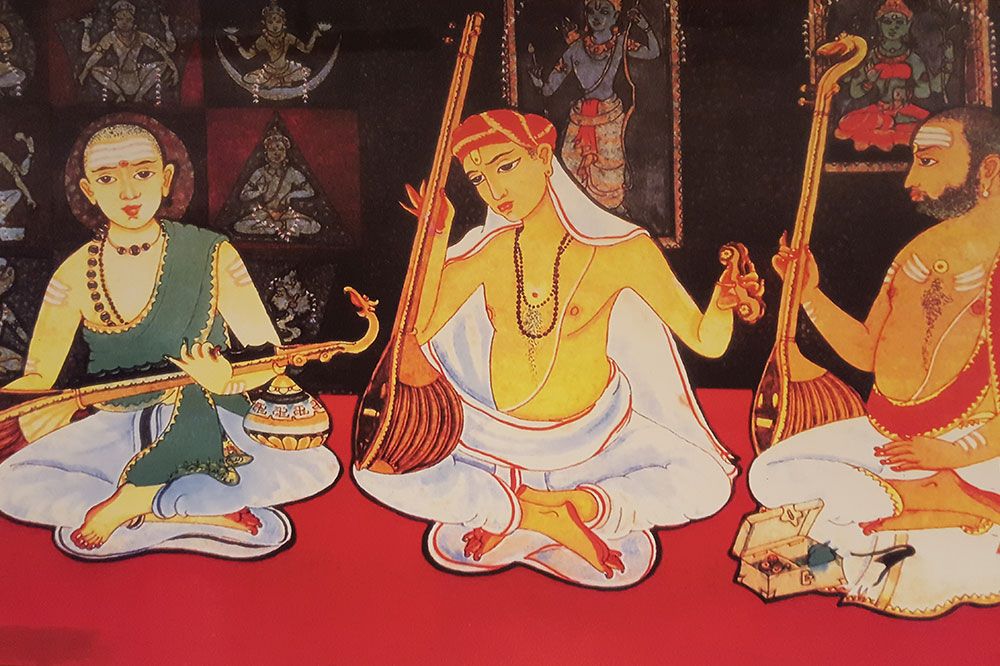Dhvani: Through the lens of Saint Thyagaraja
As I was thinking of a topic for an article to write for the Dhvani souvenir, I wondered what Saint Thyagaraja would have thought about ‘Dhvani’. So I started exploring the true meaning or essence of ‘Dhvani’.
So here goes! Dhvani is a Sanskrit word meaning Naadam or sound. It is Dhvani that gives soul (aatma) and purpose to music. Therefore, Dhvani personifies music.
Dhvani can mean different things to different people. For example, its purpose could be to please the listener or to convey the singer’s thoughts. However, in the words of Saint Thyagaraja in his composition Swara Raga Sudha:
mūlādhāraja nādameruguṭē
mudamagu mōkṣamurā
(Knowing the Naadam coming from the inner soul is capable of granting blissful salvation)
Saint Thyagaraja explains that Naadam (Dhvani) is capable of granting one moksha (salvation).
Thyagaraja was a saint who viewed Dhvani in a very different light. Not only did he use Dhvani just as a medium to praise the Lord, but also he held profound respect for Dhvani itself.
One such example would be Sobhillu Saptaswara, where he says:
śōbhillu sapta swara
sundarula bhajimpavē manasā
(Worship the shining divinities of the Sapta Swara, O Mind!)
The saint personifies the seven swaras and he calls them “shining divinities”. These seven swaras are the very base and foundation for the Dhvani that Thyagaraja worships.
In his krithi Ragasudharasa (Andolika Ragam), he talks about the benefits that one accrues when we meditate on Dhvani.
yāga yōga tyāga bhōga phalamosaṅgē
(Dhvani bestows all the benefits of Vedic sacrifices, the practice of Yoga, renunciation and worldly enjoyments.)
By immersing oneself in the nectar of Dhvani, not only can one attain salvation, but also gain all the benefits of Vedic sacrifices and Yoga along with the benefits of all worldly enjoyments. What more does one need!
This last example is one of my favourites. In his composition Nadopasanace (Begada Ragam), Thyagaraja not only states that Dhvani is brilliant and that it is capable of granting moksha, he also states that the Trinity (Vishnu, Shankara and Brahma) became divine solely because of the fact that they meditated on Dhvani.
nādōpāsanacē śaṅkara-
nārāyaṇa-vidhulu velasiri ō manasā
(By meditation on Nada, the Trinity became effulgent, O Mind.)
This is one of the most profound things that Thyagaraja has written. He says that even the Lord used meditation on Dhvani to attain his divinity. This means that nobody, not even the Lord himself, is superior to Naadam (Dhvani). This is the extent of respect Thyagaraja bestowed on music.
So, in conclusion, Saint Thyagaraja explained the complex philosophy of how one could attain Moksha through meditation on Dhvani and presented it in a simple way through his compositions.
So let us start enjoying Dhvani!
Adithya Chakravarthy

